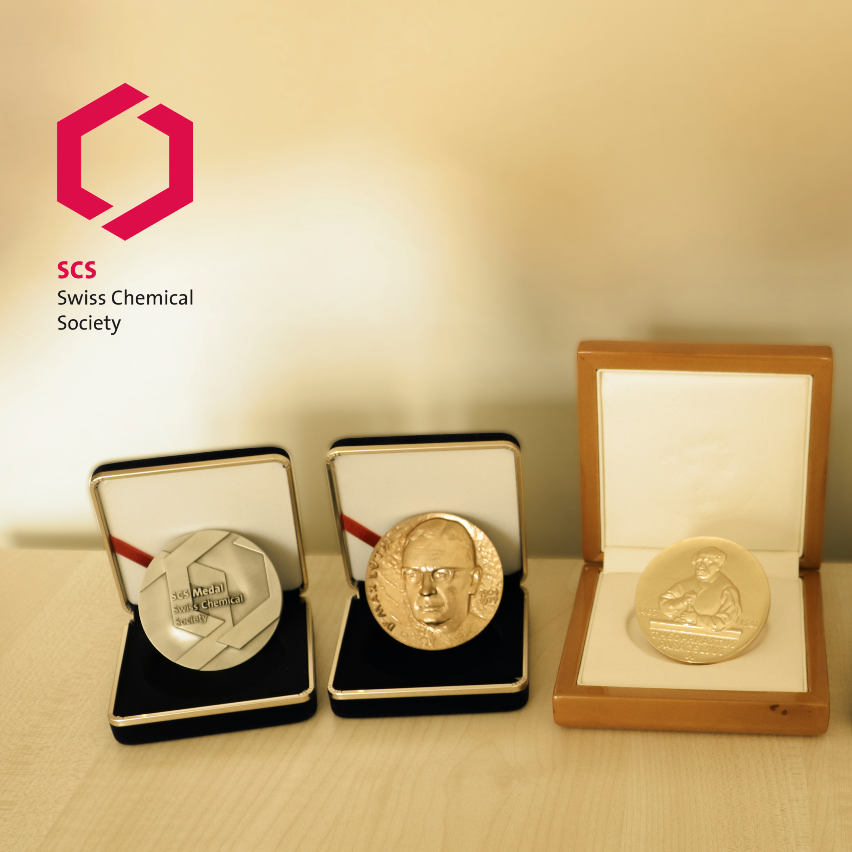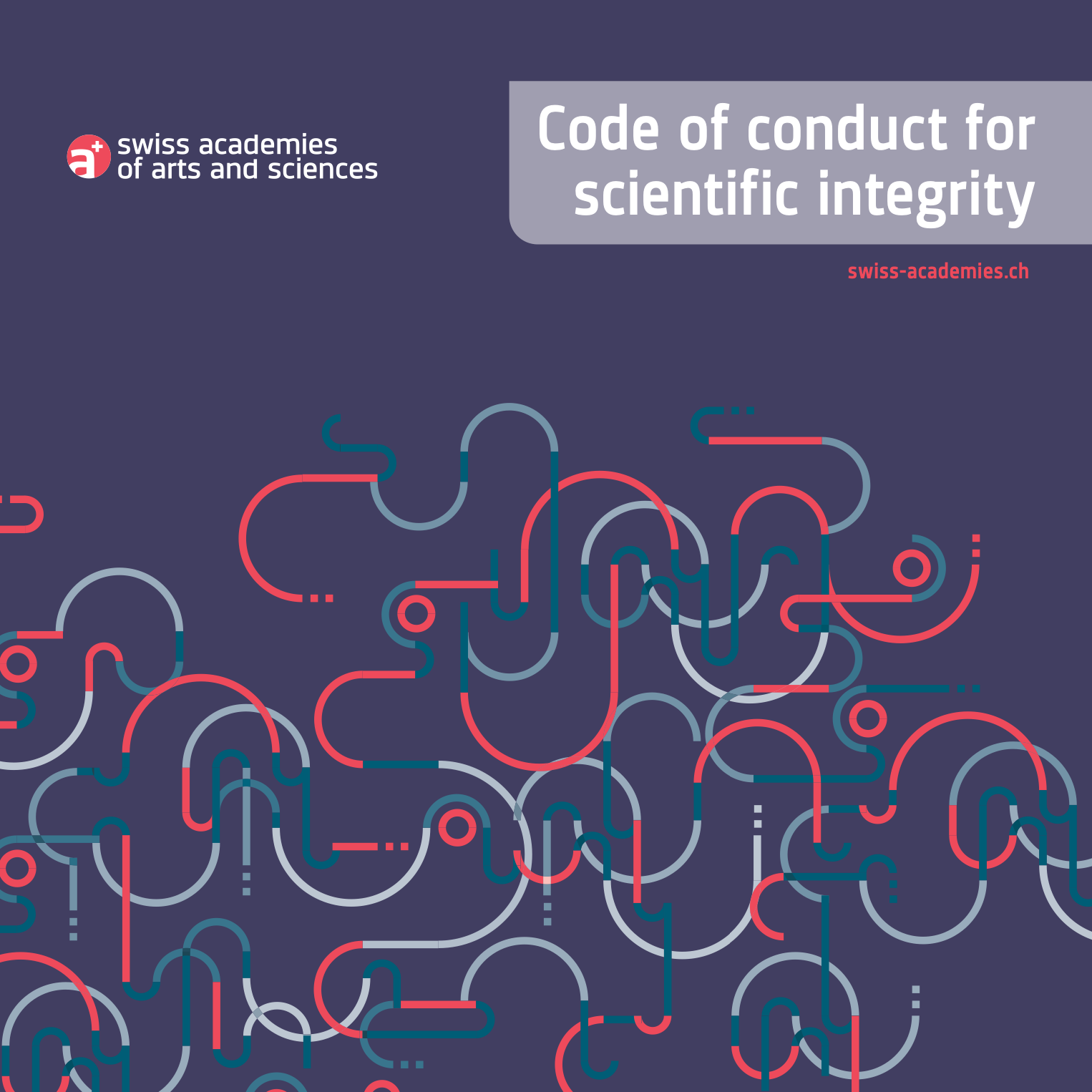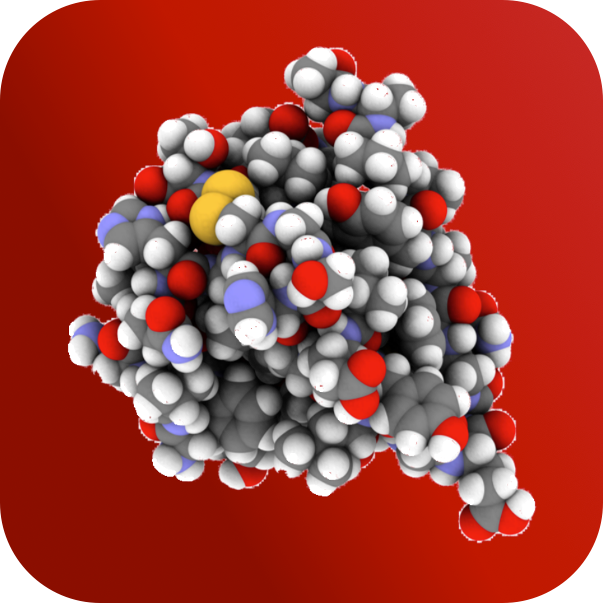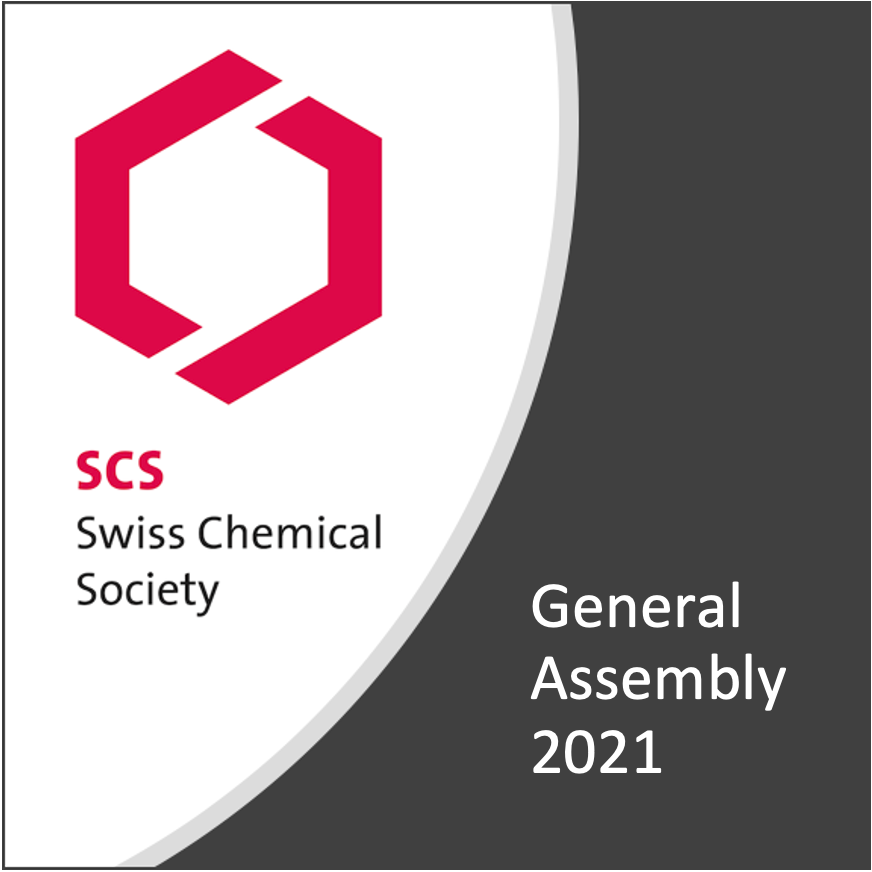SCS Scientific Award Program 2022: Call for Nominations
 The call for nominations for the SCS Awards 2022 is open until September 30, 2021.
The call for nominations for the SCS Awards 2022 is open until September 30, 2021.
Please visit our Website for further details and hand in nominations electronically to
Paracelsus Prize
CHF 20’000 and medal in gold. Awarded to an internationally outstanding scientist for his/her lifetime achievements in chemical research.
Werner Prize
CHF 10'000 and medal in bronze. Awarded to a promising young scientist for outstanding independent chemical research.
Sandmeyer Award
CHF 10'000 for individuals or CHF 20'000 for groups. Awarded to a person or to a group for outstanding work in industrial or applied chemistry.
SCS Industrial Science Awards
This program includes awards on three career levels with cash checks of CHF 7'000, 10'000 and 15’000. It honors active industrial scientists working in Switzerland for their outstanding contributions in industrial R&D.
Green & Sustainable Chemistry Award
CHF 10’000. Honors outstanding scientific discoveries that lay the foundation for environmentally friendly approaches and products. It is implemented in collaboration with Syngenta as founding partner and SusChem Switzerland as hosting institution.
Clariant Clean Tech Award (deadline 31.08.2021)
CHF 5'000 for the winner and CHF 5'000 for runners-up. Awarded to Master students, PhD students, and Postdocs in Switzerland in the field of Sustainable Chemistry.
Balmer Prize
CHF 2'000 for individuals and CHF 2'000 for the school’s chemistry department or CHF 3'000 for a group and CHF 1'000 for the school’s chemistry department. Awarded to a teacher working in Switzerland at high school (gymnasium) level for innovation in chemistry teaching.
Dr. Max Lüthi Award
CHF 1'000 and medal in bronze. Presented for an outstanding diploma thesis in Chemistry conducted at a Swiss University of Applied Sciences.
Simon-Widmer Award
CHF 5’000. Honors distinguished scientists for their contribution to analytical science and the education of analytical scientists.
METAS Award
CHF 5’000. Honors outstanding contribution to the field of metrology in chemistry and/or biology.
The Grammaticakis-Neumann Prize will be awarded the next time in 2023.
Scientific integrity - establishing standards together
 Over the past two years, a group comprised of experts from the Swiss Academies of Arts and Sciences, the Swiss National Science Foundation, swissuniversities and Innosuisse, have been working on a new code of conduct for scientific integrity. Its aim is to strengthen scientific integrity in research and educational settings, while addressing all actors, participating in the creation, dissemination and promotion of knowledge within the Swiss system of higher education.
Over the past two years, a group comprised of experts from the Swiss Academies of Arts and Sciences, the Swiss National Science Foundation, swissuniversities and Innosuisse, have been working on a new code of conduct for scientific integrity. Its aim is to strengthen scientific integrity in research and educational settings, while addressing all actors, participating in the creation, dissemination and promotion of knowledge within the Swiss system of higher education.
For Institutions it serves as a checklist for their own regulations and as a practical reference when there is doubt about best practices. Furthermore, the code takes recent developments in the fields of open science and social media into account, and provides precise recommendations on how best to set up structures for the protection of integrity.
The code of conduct was published in four languages on 11 May 2021.
> More information on the website of A+
> Learn more about the Expert Group!
Peptide Therapeutics Forum 2021: Register Now!

We are pleased to invite you to the Peptide Therapeutics Forum 2021, that is planned to take place on 19th and 20thAugust 2021 in Basel. The forum provides an innovative platform to exchange on the various aspects of drug development with a focus on peptides. The event is planned partly online and partly on-site. However, if COVID-19 restrictions do not allow us to do so, the symposium will take place as an online event.
Peptide Therapeutics Forum 2021
Hybrid Conference
19-20 August 2021, 09:30 – 16:30
ptf21.scg.ch
Similar to previous events in the framework of Basel Life, presentations highlighted important new insights regarding the drug discovery of peptides including examples for successful development candidates. The forum disseminated information on latest news in the broad field of therapeutic peptides and enabled networking of interested parties from academia and industries.
The Scientific Program offers invited lectures and also a virtual poster session during the lunch break with 24 video posters.
Registration to join the conference is mandatory and gives you access to the virtual meeting rooms (Zoom platform).
Registration is now open.
| register to join the hybrid conference |
We are looking forward to welcoming you soon!
Céline Wittwer, SCS
06.05.2021
Minutes of the 31st General Assembly of the SCS
April 15, 2021, 13:15-13:50, online meeting via Zoom. The minutes are also published in CHIMIA 5/2021.
-
Welcome; Approval of the Agenda
During the lunch break of the online SCS Spring Meeting David Spichiger, SCS Executive Director, opened the assembly and welcomed all members/attendees. Due to the Corona restrictions that are still in place, the assembly took place as an online meeting. Legal formalities were all fulfilled, and the assembly was quorate. Item 9. ‘Membership fees 2022’ was added to the agenda as this item was missing in the invitation. The agenda was approved.
-
Accepting online vote counting
17 SCS members participated in the virtual meeting. The director proposed to vote and elect with the Zoom voting tool and the assembly approve the proposal.
-
Minutes from the 30th GA from June 24, 2020
The minutes were published in CHIMIA (2020, 74, No. 7-8, A635f). The minutes were approved with 13 votes in favor and one abstention.
-
Annual report 2020
The annual report was published in CHIMIA (2021, 75, No. 1-2, A142ff). It was approved unanimously.
-
Financial report 2020 and audit report
David Spichiger presented the financial statement. Incomes of CHF 1’092’723 and expenses of CHF -1’223’967 result in an operating loss before taxes of CHF -131’244. The portfolio at Bank von Graffenried performed well and resulted in a value increase of CHF 87’313. Taking into account taxes and non-periodic income and expenses of -4’048, an overall loss of CHF -48’160 resulted.
The SCS funds profited from the positive development at the stock markets as well and an overall surplus of CHF + 46’962 resulted.
As of 31.12.2020 the assets summed up to CHF 4’515’923.
Audit Report:
In the audit report from March 10, 2021, provided by BDO AG, Bern, no inconsistencies are mentioned, and the financial statement fulfills the legal requirements according to the SCS bylaws and the Swiss Civil law.
The assembly approved the financial statement 2020 and the audit report with 16 votes in favor and one abstention.
-
Discharge the Organs of the Society
The assembly discharged the board members and the financial audit unanimously with one abstention.
-
Elections: SCS Executive Board, ExB (and BoD)
Alain De Mesmaeker, SCS President, presented the changes to the Executive Board (ExB) and the Board of Directors (BoD) and introduced the candidates. The assembly elected the following members to the ExB unanimously. As ExB members, they also take a seat on the Board of Directors ex-officio:
- Dr. Christian Bochet, University of Fribourg, currently Vice-President, was elected as SCS President as of 1. January 2022. He succeeds Dr. Alain De Mesmaeker who steps down after six years in charge.
- Yves Auberson, Novartis, was elected as new member of the Board of Directors and member of the Executive Board as of 1. May 2021. He was also elected as new Vice-President as of 1. January 2022. As a member of the Executive Board, Yves Auberson is granted joint signature with a second ExB member.
- Hans Peter Lüthi, was elected with reservation to continue his mandate as member and treasurer until the ExB appoints a successor. Hans Peter has to step down after 9 years in office.
-
Elections: SCS Board of Directors, BoD, and Financial Audit
The assembly elected the following members to the BoD with 15 votes in favor and one abstention:
- Dr. Christoph Copéret, ETH Zurich, Swiss Representative in the EuChemS ExB, no signatory right.
- Maud Reiter, Firmenich SA, Member, no signatory right.
- Corinne Jud, Agroscope, Member, no signatory right.
- Leslie Fendt, F. Hoffmann-La Roche, Member, no signatory right.
The assembly confirmed the elections of the divisional assemblies and elected the following persons to the BoD unanimously:
- Dr. Jean-Louis Reymond, University of Bern, representative of the DMCCB, Member, no signatory right.
- Dr. Harm-Anton Klok, EPFL Lausanne, representative of the DPCI, Member, no signatory right.
- Dr. Eric Bakker, University of Geneva, representative of the DAS, Member, no signatory right.
- Benjamin Ries, ETH Zürich, representative of the youngSCS, no signatory right.
The following BoD members stepped down and the entries in the commercial register will be deleted with immediate effect.
- Dr. Sandrine Gerber, EPFL Lausanne, Member
- Martin Vollmer, Clariant AG, Member
Dr. Alain De Mesmeaker will step down as SCS President as of 31. December 2021 and his entry in the commercial register will be deleted afterwards.
The assembly confirmed BDO AG, Bern unanimously as audit instance for the financial statement 2021.
-
Membership fees
The annual membership fees 2022 were approved unanimously:
- Regular member CHF 150.00
- Student member CHF 50.00
- Retired member / unemployed members CHF 80.00
- Institutional member (institutions) CHF 800.00
- SCS Partnership (institutions) CHF 3’000.00
Additional Fees for Divisions
- Industrial & Applied Chemistry - Regular CHF 20. 00
- Company CHF 100.00
- Photochemistry Section - Regular CHF40.00
- Student CHF 20.00
15% discount on collective memberships for university research groups.
-
News and Strategic Projects
The Board of Directors decided on the following, strategic initiatives that will be pushed the coming months:
- Establish recently implemented networks like the …
- Material Sciences (Lead Maksym Kovalenko)
- Chemical Ecology (Lead Matthias Erb)
- Flow Chemistry (Lead Claudio Battilocchio)
- Artificial Intelligence (Lead Thorsten Luksch)
- Transform the DAS Education Course Organization into the SCS Academy (Lead David Spichiger and Esther Wolff)
- Industry jobs for PhD, Internships for MSc (Lead Hans Peter Lüthi)
- SCS Partnership / SCS Industrial Science Awards (Lead David Spichiger)
- Managing the late effects of the pandemic
-
Outlook 2021/22
- In 2021 sixteen conferences and symposia took place or will take place either onsite or online under the direct organization of SCS. Due to the COVID-19 pandemic, 2 events and most SCS Lectureship tours are postponed to 2022.
- The list of all events is updated regularly and is available on http://scg.ch/events.
-
Varia
No requests to speak were requested from the audience. The Director thanked for the confidence and closed the meeting.
Bern, April 15, 2021
Dr. Alain De Mesmaeker David Spichiger
President Executive Director
Invitation to the virtual SCS General Assembly 2021
 The Board of Directors invites all members of the Swiss Chemical Society and the delegates of its associated societies to join the 31st General Assembly.
The Board of Directors invites all members of the Swiss Chemical Society and the delegates of its associated societies to join the 31st General Assembly.
Due to the uncertainty that comes along with the Covid-19 pandemic, we will again organize the assembly as a virtual event via video conference.
SCS General Assembly 2021
April 15, 2021, 13.15–14.00h (Lunch break of the SCS Spring Meeting 2021).
Join the assembly via Zoom: https://sm21.scg.ch/zoom
Agenda GA 2021
- Welcome and approval of the agenda
- Accepting online vote counting
- Minutes of the 30th General Assembly from June 24, 2020 (published in CHIMIA 7-8/2020, A635)
- Annual report 2020 (published in CHIMIA 1-2/2021)
- Financial statement 2020 incl. audit report (access for members only)
Summary of the financial statement 2021 and asset allocation per network and funds (access for members only) - Discharge the Board
- Elections as member of the Executive Board (ExB):
- Christian Bochet as new President as of 2022
- Yves Auberson as new Vice President as of 2022 and as member of the ExB as of May 2021
Short biographies of Ch. Bochet and Y. Auberson - Elections as member of the Board of Directors as of May2021:
- Leslie Fendt, Roche
- Maud Reiter, Firmenich
- Corinne Jud, Agroscope
Short biographies of M. Reiter, L. Fendt and C. Jud - News and strategic projects
- Outlook 2021/2022
- Varia
David Spichiger, SCS
published: 27.02.2021, updated: 13.04.2021
Page 35 of 305
